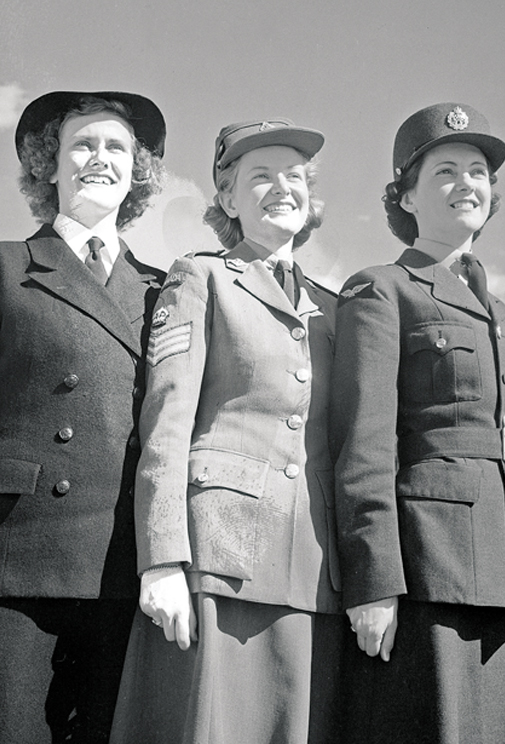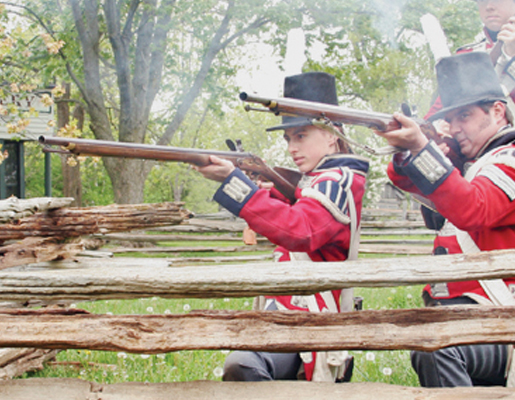1. Converge on the Dunvegan Crossroads for the Battle of Glengarry
The Battle of Glengarry returns for its 6th annual re-creation of this pivotal battle in the War of 1812. Re-enactors from Canada and the United States will use muskets, cannons and campfires to tell the story of what happened here more than 200 years ago. There will also be a historic fashion show, encampment tours and merchants selling souvenirs.
The Battle of Glengarry
Sept. 26-27
Glengarry Pioneer Museum, Dunvegan, Ont.
www.glengarrypioneermuseum.ca/home/events/1812-re-enactment

[Lieut. Ken Bell/DND/LAC-PA-208583]
2. Discover a century of women at war
This special exhibit at the national war museum traces the impact of total war on women through the 20th and early 21st centuries. While the focus is on what women did during conflicts–at home and overseas–the exhibit will also explore what it all meant, not only to women but to Canadian society as well.
Canadian War Museum
October-March 2016
Ottawa
www.warmuseum.ca
3. Get scared at old Fort Henry in Kingston
As the scary voice says: “The fort has come alive with bone-chilling scares! Do you have what it takes to venture into the park and make it back out?” Fort Henry turns into a labyrinth of fright for the whole month of Halloween. As an added feature, children can get a special safe pass to ensure they won’t get frightened
too badly.
Fort Fright
Oct. 1 – Nov. 1
Fort Henry, Kingston, Ont.
www.forthenry.com/events/fort-fright/
4. The War of 1812 comes alive in Ontario
Almost 200 years after it was attacked for real, Upper Canada is once again going to be invaded. However, this time it will be the members of the Upper Canada Military Re-Enactment Society doing the attacking, not the Americans. Experience what life was like for soldiers during this battle and even try an authentic tavern meal at the Pioneer Village Cafe.
The Invasion of Upper Canada
Oct. 3-4
Fanshawe Pioneer Village, London, Ont.
www.fanshawepioneervillage.ca

Fanshawe Pioneer Village
5. Live the glorious Celtic history on Cape Breton Island
History comes alive with more than a week of concerts, events and amazing food during this unique festival on Canada’s East Coast. With dozens of things to do and see all across the island, this
trip is sure to be a hit with anyone interested in Canadian history.
Celtic Colours International Festival
Oct. 8-18
Cape Breton Island, Nova Scotia
www.celtic-colours.com
Advertisement





















